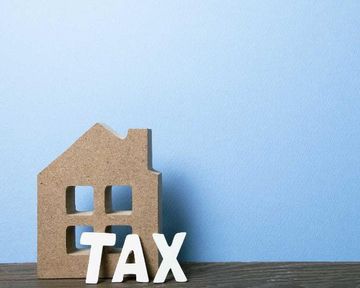Your guide to compliance certificates as a home owner
In South Africa, compliance certificates are essential documents that property sellers and landlords must obtain to ensure that their properties meet certain legal and safety standards. These certificates help protect both buyers and tenants by verifying that the property is safe and in compliance with relevant regulations.
As a home owner preparing to sell, it's crucial to have all compliance certificates ready before listing the property. Although it's possible to obtain these after an offer has been signed, any hitches in securing a particular certificate might lead to delays in the sale process. It's important to note that the responsibility of ensuring the property is legally fit for sale squarely rests on the seller's shoulders.
Compliance certificates play an essential role in maintaining the safety and legality of your home. Some of these documents are mandated by national regulations, such as your electrical certificate and your electrical fence certificate. Others, like Cape Town's water certificate requirement or a beetle certificate for coastal properties, are necessitated by municipal by-laws. Certain institutions, like banks, also require these certificates before providing finance, a practice that has become standard. Neglecting to secure these certificates could jeopardize the sale of your home, demonstrating their importance.
Here are some of the key compliance certificates you may need for your property:
1. Electrical Compliance Certificate (COC):
- This certificate is required to ensure that the electrical installation in a property is safe and complies with the South African National Standards (SANS).
- A certified electrician must inspect the electrical system and issue a COC if the installation is compliant.
- COCs are typically valid for two years, after which a new inspection is required.
2. Plumbing Certificate of Compliance (COC):
- This certificate is necessary to verify that the plumbing system in the property meets the standards set out by local authorities.
- A qualified plumber must inspect the plumbing system and issue a COC if it is compliant.
- Plumbing COCs are valid for a specific period, usually one year.
3. Beetle and Pest Infestation Certificate:
- In some regions, especially in coastal areas, properties may need a certificate confirming that the property is free from wood-destroying pests like beetles and termites.
- An accredited pest control specialist typically conducts this inspection.
4. Gas Compliance Certificate:
- If your property has a gas installation (e.g., gas stoves or heaters), you may need a gas compliance certificate to ensure that the installation is safe.
- A registered gas installer will inspect the gas installation and issue the certificate.
- As of 1 May 2023, Gas Compliance Certificates in South Africa have been changed to a new prescribed five-page document in order to comply with the law. The SAQCC Gas NPC has been officially appointed and mandated by the Department of Employment and Labour to register gas practitioners within the various gas industries in South Africa. All gas Certificates of Compliance (CoCs) must now comply with the prescribed form, and gas compliance companies are prohibited from using any other form. Any other format of gas CoC will not be accepted starting from 1 May 2023. Additionally, whenever ownership of a property changes, a new gas certificate is also required.
The inspection process for gas compliance includes:
- checking cylinder storage to comply with safety zones,
- ensuring the use of SABS-approved piping installed correctly,
- verifying the installation of isolation and emergency valves,
- ensuring adequate ventilation at the cylinder and inside rooms,
- checking if SABS-approved appliances are connected to the reticulation system, and
- conducting a pressure leak test to establish system continuity.
5. Water Installation Certificate:
In some areas, you may need a certificate to confirm that the water installation in your property complies with local regulations.
6. Solar Energy Installations
When it comes to electrical certificates, they're usually required when properties are bought or sold. These certificates show that the electrical installations in a property are safe and up to standard. But what about properties with solar panels?
Understanding Electrical Certificate Rules:
The rules for electrical certificates are laid out in regulations. These rules say that anyone using or renting a property with electrical installations should have a valid electrical certificate. When you sell a property, you need to give the buyer an electrical certificate that's no older than two years.
What About Solar Panels?
Now, the question is, do solar panels count as electrical installations? According to the regulations, an electrical installation refers to any machinery used to transmit electricity within a property. It covers everything from wires to sockets, but it excludes certain things like machinery related to the electricity supplier or communication devices.
Solar Panels and Electrical Certificates:
Solar panels aren't explicitly excluded from the definition of electrical installations. So, it seems like you might still need an electrical certificate when you use solar power. In fact, many compliance certificates already include solar panel installations.
While it's a bit unclear, it's a good idea to get a compliance certificate for your solar energy system just to be safe. The rules might need an update to make this clearer. For now, it's best to follow the general practice of obtaining a compliance certificate when using solar power in your property.

